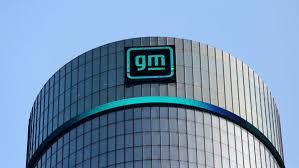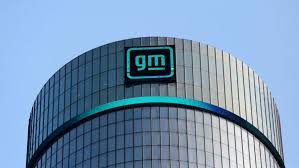
American auto giant General Motors Co was forced to stop the completion and deliveries of its pickup trucks because of the global semiconductor shortage. However, a high-ranking executive of the company recently said that the company is close to completing shipping of the newly-assembled pickups already.
"We've made great progress," Steve Carlisle, GM's North American chief executive said at the Reuters Events Automotive Summit. "We're a bit better than halfway through that at the moment and our goal would be to clear out our '21 model years by the end of the year. We'll have a bit of a tail of '22 model years into the new year but not for too long."
Global auto companies such as GM have been forced to halt manufacturing and assembling of vehicles because of the global shortage of semiconductor chips. Some companies like GM had also assembled the vehicles without semiconductors and left them in that way till the arrival and installation of the necessary chips and then ship the vehicles to respective dealers.
The wholesale deliveries for the third quarter of GM vehicles could go down by as much as 200,000 units due to the chip shortages, Chief Financial Officer of the company Paul Jacobson had warned last month. But no breakdown of the share of pickup trucks in the almost completed vehicles was provided by him.
A number of car haulers for delivering the finished pickups from the company factories or distribution centers have been bought by GM in order to speed up the process of transportation of the newly-built vehicles to dealers, said Carlisle. Dealers of the company have also been allowed to pick the vehicles up themselves from some locations.
The supply chain disruptions have resulted in the shrinking of the new vehicle inventories of the company to below 20 days in the United States, Carlisle said. However, the Detroit-based automaker wants to increase the inventory back up to 30 to 45 days while some get to 60 days depending on the product line.
According to predictions of GM, over the current decade there will be steady demand and sale of gasoline-powered vehicles as well as present a real growth opportunity for electric vehicles and software, with one not undermining the other, he said.
(Source:www.usnews.com)
"We've made great progress," Steve Carlisle, GM's North American chief executive said at the Reuters Events Automotive Summit. "We're a bit better than halfway through that at the moment and our goal would be to clear out our '21 model years by the end of the year. We'll have a bit of a tail of '22 model years into the new year but not for too long."
Global auto companies such as GM have been forced to halt manufacturing and assembling of vehicles because of the global shortage of semiconductor chips. Some companies like GM had also assembled the vehicles without semiconductors and left them in that way till the arrival and installation of the necessary chips and then ship the vehicles to respective dealers.
The wholesale deliveries for the third quarter of GM vehicles could go down by as much as 200,000 units due to the chip shortages, Chief Financial Officer of the company Paul Jacobson had warned last month. But no breakdown of the share of pickup trucks in the almost completed vehicles was provided by him.
A number of car haulers for delivering the finished pickups from the company factories or distribution centers have been bought by GM in order to speed up the process of transportation of the newly-built vehicles to dealers, said Carlisle. Dealers of the company have also been allowed to pick the vehicles up themselves from some locations.
The supply chain disruptions have resulted in the shrinking of the new vehicle inventories of the company to below 20 days in the United States, Carlisle said. However, the Detroit-based automaker wants to increase the inventory back up to 30 to 45 days while some get to 60 days depending on the product line.
According to predictions of GM, over the current decade there will be steady demand and sale of gasoline-powered vehicles as well as present a real growth opportunity for electric vehicles and software, with one not undermining the other, he said.
(Source:www.usnews.com)





